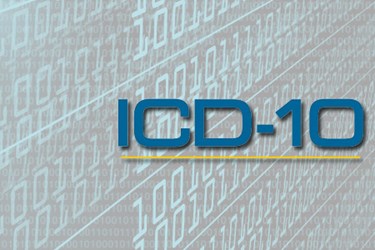GAO Finds CMS Ready For ICD-10
By Megan Williams, contributing writer

The Government Accountability Office (GAO) has declared that the efforts of the Centers for Medicare and Medicaid Services (CMS) to prepare healthcare entities (providers, clearinghouses, and plans) for the implementation of ICD-10 has been sufficient. It did so in an announcement last month on its official website.
Preparation
The announcement acknowledged the work CMS has done in preparing for the transition. This has included checklists and timelines for entities covered under HIPAA (vendors included), educational materials, and outreach efforts including in-person training for small physician practice in various states.
Agency officials have also been monitoring covered entity and vendor preparedness through focus group testing, collaboration meetings, and surveys within the healthcare industry. Systems and policies in the Medicare program have been modified in response.
Stakeholder Concerns
Stakeholders have been vocal about their concerns throughout the process.
One such concern was the belief that CMS testing activities were not comprehensive, despite them feeling positive about educational materials overall. In response, end-to-end testing was launched during three weeks in 2015 (preliminary results available here). The testing weeks serve not only the purpose of evaluating agency readiness to implement the new coding system, but have also a sort of publicity for the educational materials that are available to all stakeholders, whether they’re participating in the testing weeks or not.
Moving forward, CMS officials have said that they plan on adding in-person training in additional states, and to incorporate more video training, along with specialty-focused materials. They also plan on reaching beyond electronic methods, and engaging covered entities to make Medicare FFS contingency plans known to the public.
The Report
The report includes an explanation of the state of healthcare spending and coding, as well as the study conducted by the GAO in evaluating CMS’ activities. It also incorporates a chart detailing the flow of care transactions from providers to payers, as well as outlining differences between ICD-9 and -10.
Additionally, the report covers the uses of codes overall, and details the efforts that CMS has made in creating educational and outreach materials for covered entities.
It concludes: “A successful transition to ICD-10 codes requires every healthcare provider, clearinghouse, and payer to prepare in advance of the October 1, 2015, transition deadline. CMS has taken multiple steps to help prepare covered entities for the transition, including developing educational materials and conducting outreach, and the majority of the stakeholders we contacted reported that both of those activities have been helpful to preparing covered entities for the ICD-10 transition. With respect to Medicare, CMS reported that the agency’s Medicare FFS claims processing systems have been updated to reflect ICD-10 codes, and it is not yet known whether any changes might be necessary based upon the agency’s ongoing external testing activities. CMS has also worked with the states to help ensure that their Medicaid systems are ready for the ICD-10 transition, but, in many states, work remains to complete testing by the transition deadline.”
